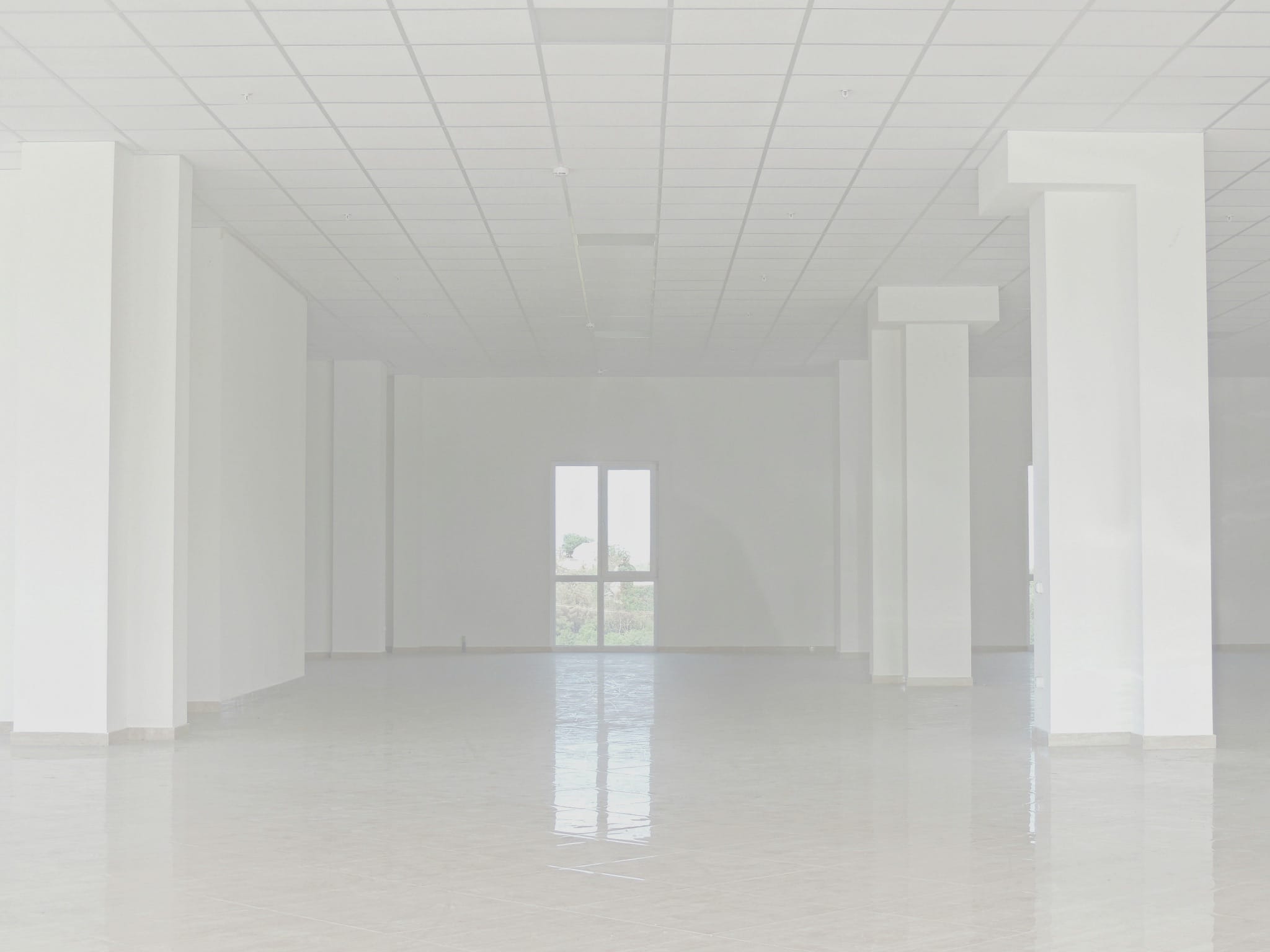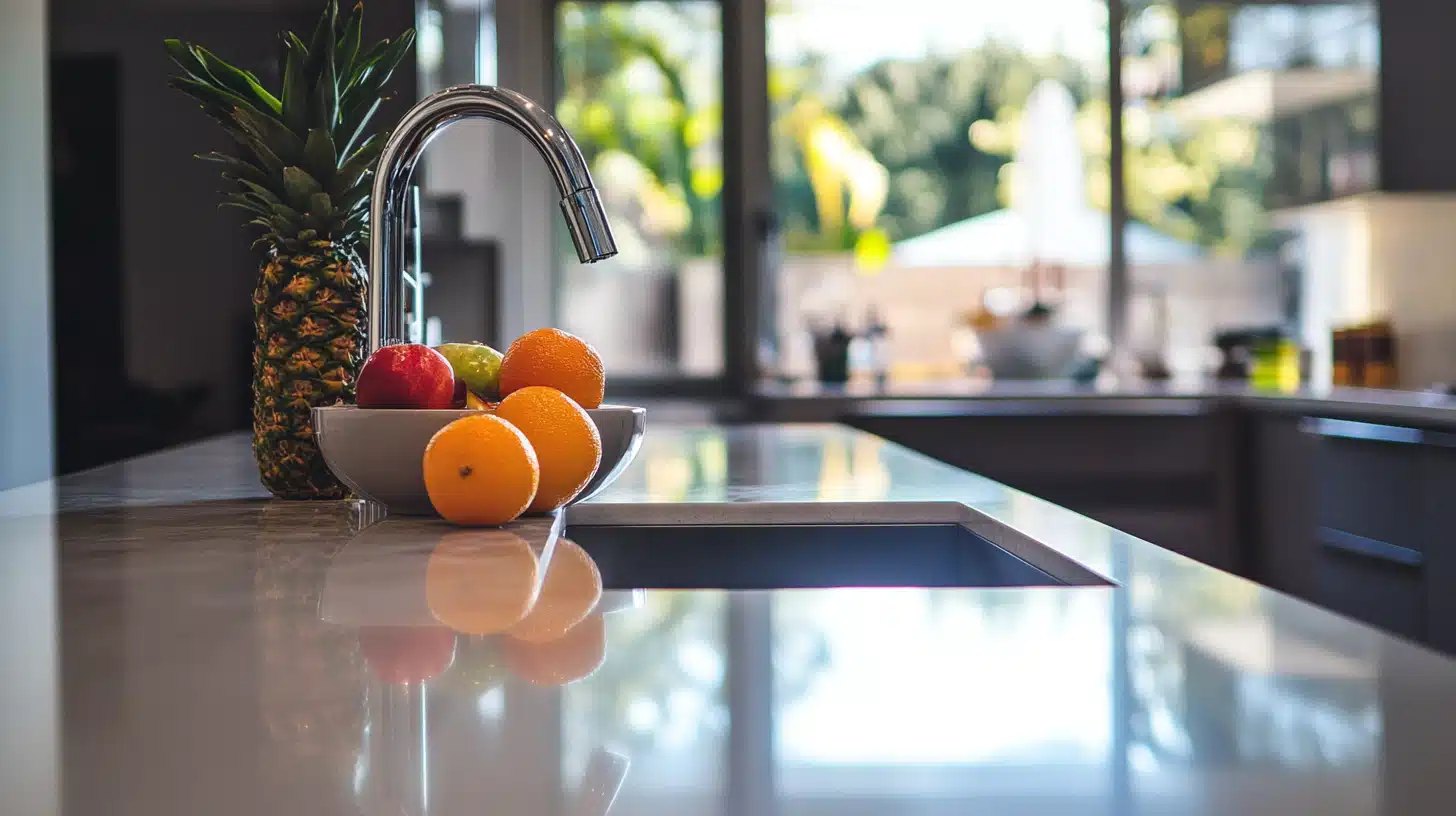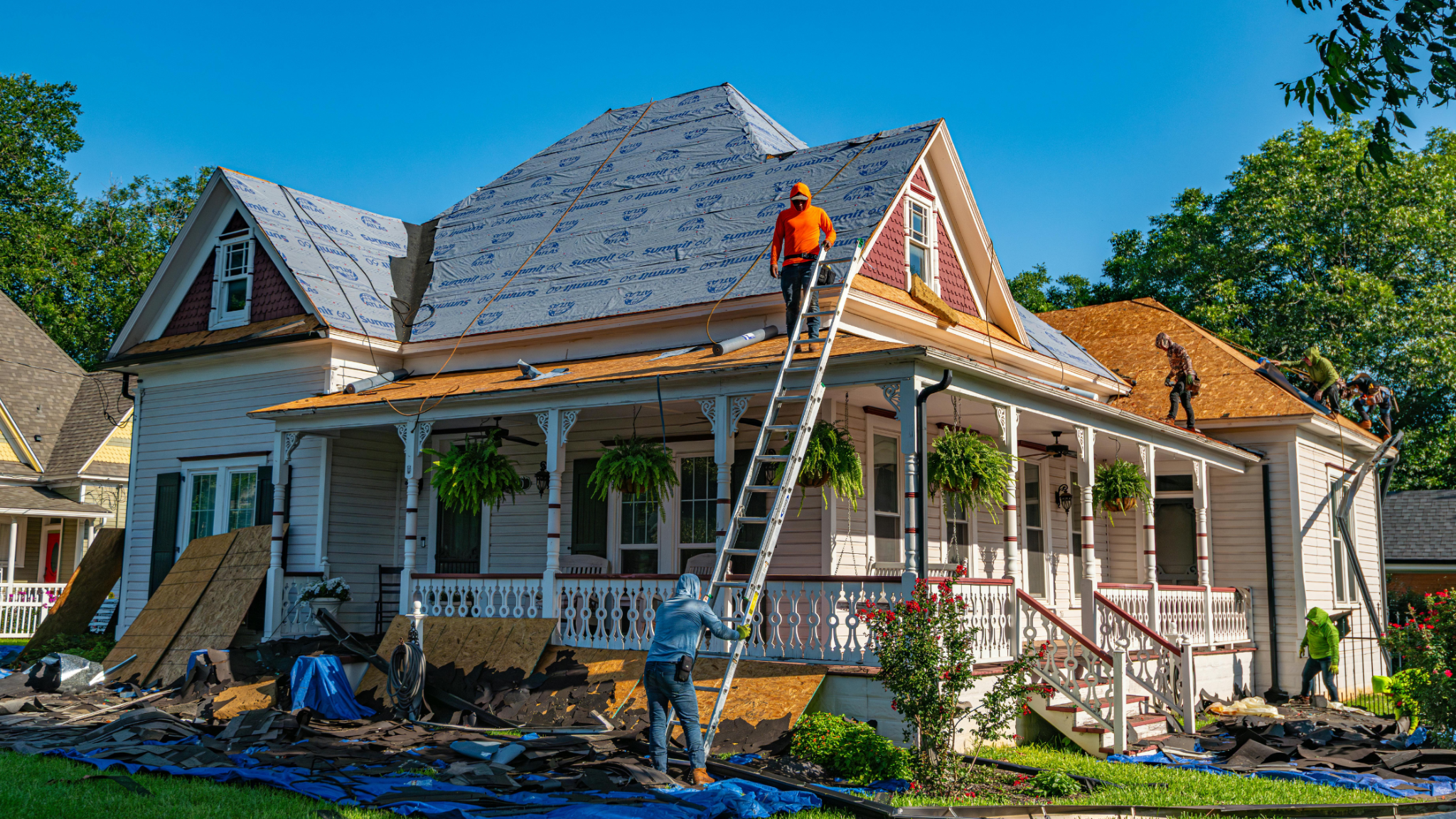How to Choose Durable Epoxy Floor Coatings for your Home?
Residential epoxy flooring is one of the most popular and aesthetically pleasing coatings that are highly durable and hardwearing.
The function and location of the floor, the amount of strength and durability required, the floor’s resistance to chemicals and mechanical damage, ease of cleaning and maintenance, personal preferences, the presence of UV protection to prevent fading, the floor’s anti-slip qualities for safe use in high-humidity areas, and the cost of coating installation and upkeep should all be taken into account when determining whether or not your home needs an epoxy floor.
What are Epoxy Floors?
Epoxy floor is an eco-friendly floor produced from a liquid mixture of epoxy resins with catalysts. All variants of epoxy floors and auxiliary mixtures (primers, fillers, base coats, protective varnishes) are produced only on a two-component basis. A hardener is required to polymerise the resin – approximately 25% of its volume.
The curing time (polymerisation) of such floors is 7-10 hours for walking on them or for applying the next layer. Full curing with a set of guaranteed properties occurs after 7-14 days.
Residential epoxy flooring can be made glossy, matt, rough, decorated, coloured. The appearance can be changed with various additives.
Today, epoxy flooring is among the oldest floor coating for homes and one of the most durable floors.
Epoxy floors are no longer considered too complex in technology, which is why they are widely used. Modern additives of the chemical industry – defoamers and plasticisers – rid them of brittleness and abrasion.
You can find the best quality epoxy flooring installation services on the web at https://ultracoatingepoxyflooring.ca/.
Reasons to Сhoose Epoxy Flooring
- Resistant to stress. It is not subject to scratches and chips, e.g. from falling loads or intensive forklift driving.
- Durable floor. Service life reaches 10-15 years with proper use and pouring.
- Moisture resistance. The floor will not deteriorate in high humidity conditions, nor will mold and fungus form on it. Durability is directly related to life and use and the ability of the material to withstand risks such as water resistance; compatibility with underfloor heating and fire safety (given that the demand for individual residential construction has increased dramatically in recent years, the requirements for thermal loads on floors have increased. The floor covering must be able to withstand overheating with a warm floor and not spread flames); wear resistance and practicality. An important factor is the parameter of wear resistance to friction, dragging, scratching and other influences.
- Eco friendly floor. The flooring made of epoxy or polyurethane compositions emit harmful chemicals only during the polymerisation process and in cases when solvents are added to the materials to maintain the required consistency of the composition. Once the material is fully cured, the coating is completely harmless. Yes, polymer floors do not consist of natural materials, but they are very close to them in terms of their hygiene characteristics. You can always learn about this from the quality certificates. Although it is worth noting that among epoxy floors there are also such brands that can fully guarantee safety even during the works themselves. Sustainability and ecology play an important role in today’s world, therefore sustainable flooring is a greate choice!
- Safety. Epoxy coatings can be specially formulated with anti-slip components to reduce the risk of falls and injuries, especially in areas with high humidity or frequent contact with liquids. Also, the smooth and non-porous surface of epoxy floors prevents the accumulation of dirt, dust and germs. This is particularly important for healthcare facilities, food processing plants and other facilities where high standards of cleanliness are required. Furthermore, some epoxy coatings are highly fire resistant and can slow the spread of fire, which is important for safety in the event of a fire. So epoxy flooring for homes is a safe decision!
- Easy to clean and maintain. Epoxy coatings are easy to clean and do not require the use of aggressive cleaning agents, which reduces the impact of chemicals on human health and the environment.
- Quick application and drying time. Compared to other floor coating kinds, epoxy flooring can be applied and dried rather quickly. This reduces downtime and expedites the room’s commissioning.
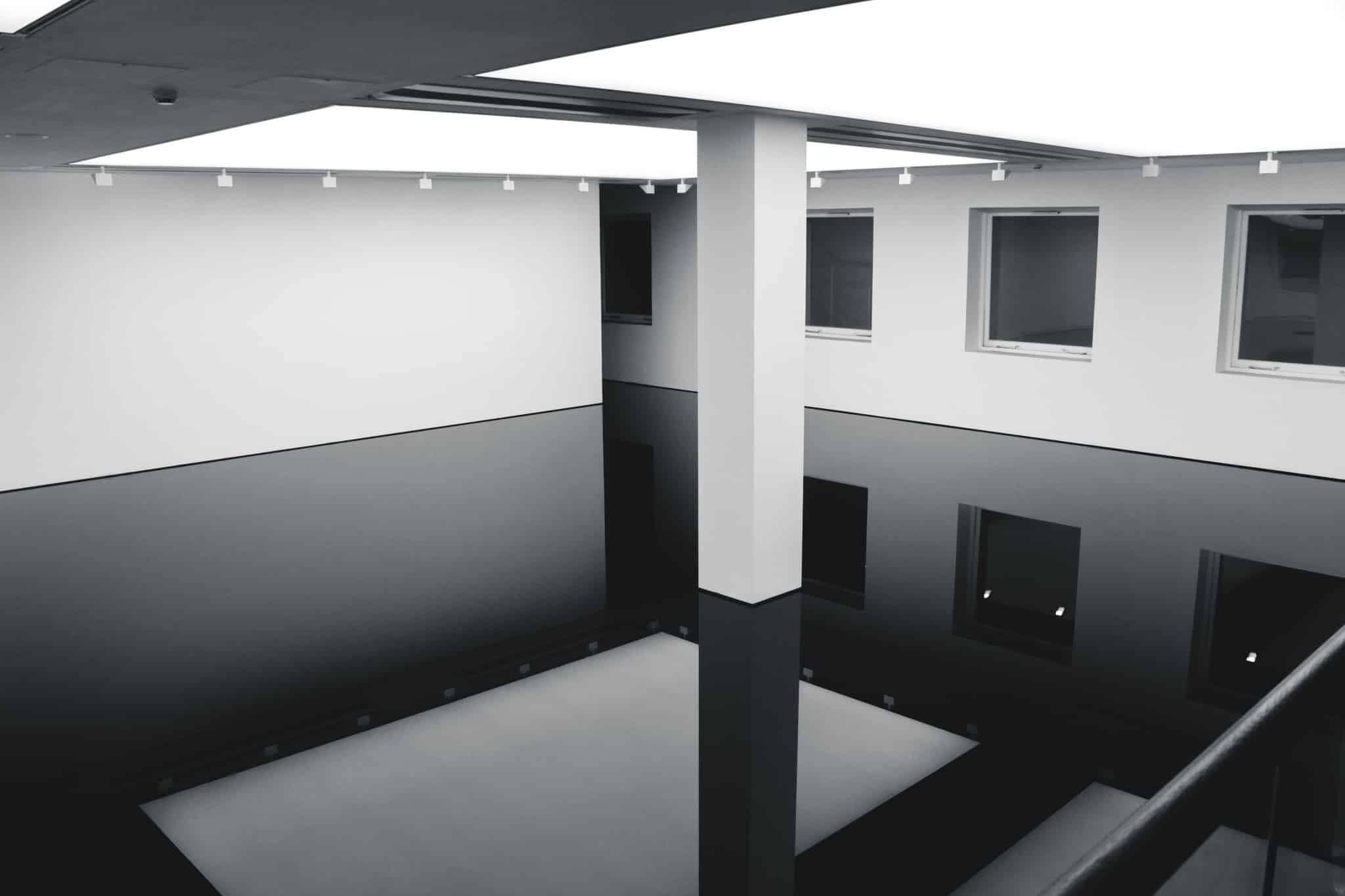
How to Choose Epoxy Floor Material
Epoxy flooring is an excellent choice for those looking for a quality and durable flooring! There are different types of epoxy floors, each with specific characteristics that make them suitable for different uses. Epoxy floors come in different types and therefore in different floor coating materials.
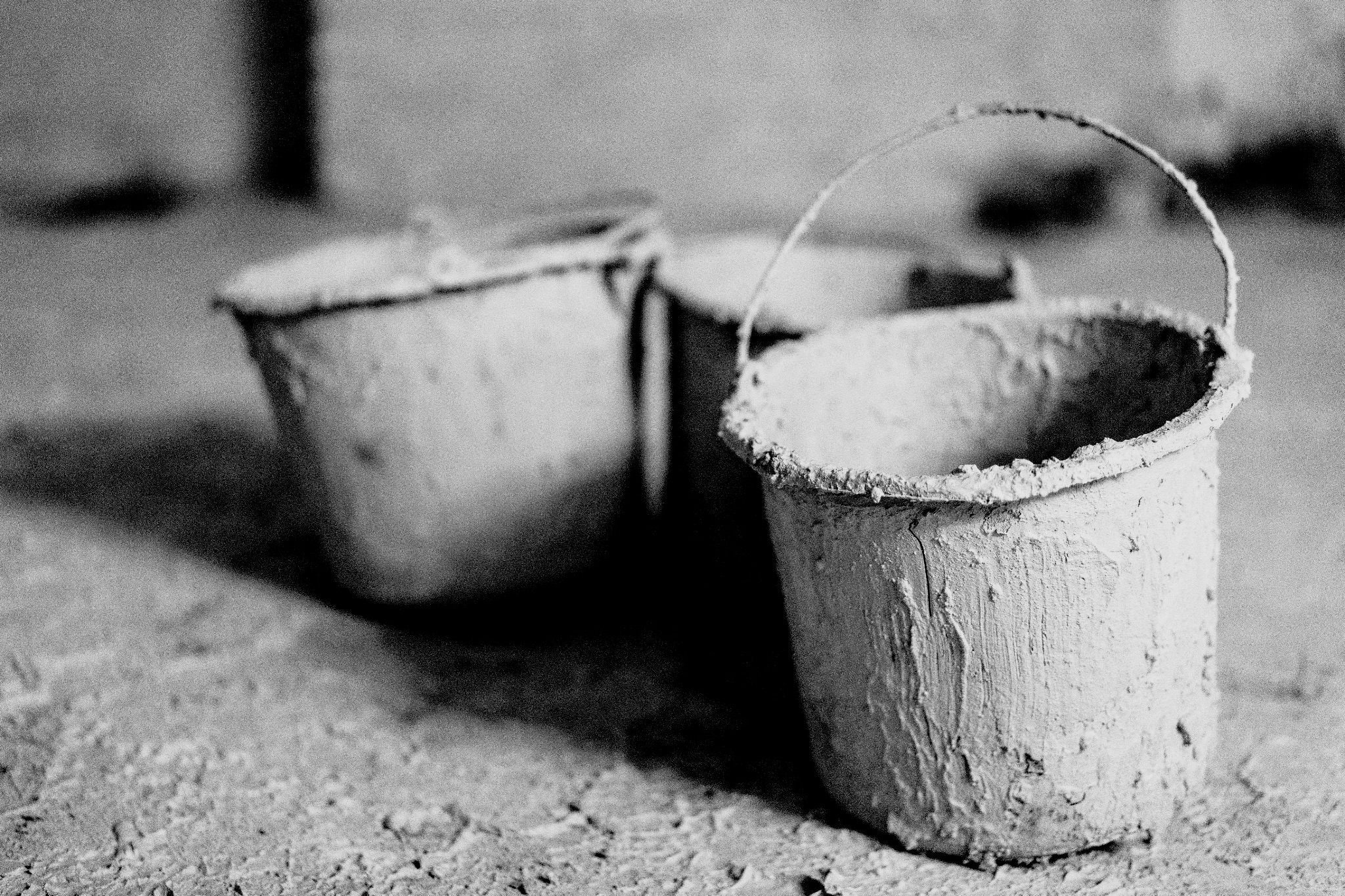
What Material is Used for Epoxy Flooring
1. Epoxy resin. Epoxy resin is the basic material for creating coatings. It is a thermosetting polymer that, when mixed with a hardener, cures to form a tough, wear-resistant coating. Epoxy resin is highly adhesive to a variety of surfaces, making it ideal for use on concrete substrates.
2. Hardener. A hardener (catalyst) is essential for the polymerisation process of epoxy resin. Mixing the epoxy resin with the hardener causes a chemical reaction that causes the resin to cure. Hardeners can be of various types, including amine and polyamide, the choice of which depends on the requirements of the final coating.
3. Fillers and additives. Various aggregates and additives can be added to the epoxy system depending on the required coating characteristics:
– Quartz sand. Used to create textured or anti-slip surfaces.
– Pigments and dyes. Added to create different colours and shades of coating.
– Flakes (chips). Decorative elements that can be added to enhance the appearance of the floor.
– Adhesion enhancers. Special additives that improve the adhesion of the flooring to the substrate.
– Plasticisers. Added to improve the flexibility of the coating.
4. Primer. Before applying an epoxy coating, a primer is applied to the surface to improve the adhesion of the epoxy coating to the substrate. The primer also helps to remove minor surface imperfections and fills pores in the concrete.
5. Finish Coating. A finish coat can be applied for additional protection and to improve appearance. It can be glossy, matt or semi-matt. There are also special finishes with antibacterial or antistatic properties.
These floor coating materials and techniques allow you to create a diverse, durable and aesthetically pleasing coating for different types of spaces.
Choose the right floor coating materials based on your preferences and learn how to install epoxy coating on your floors!
Make the right choice of floor coating for homes!

